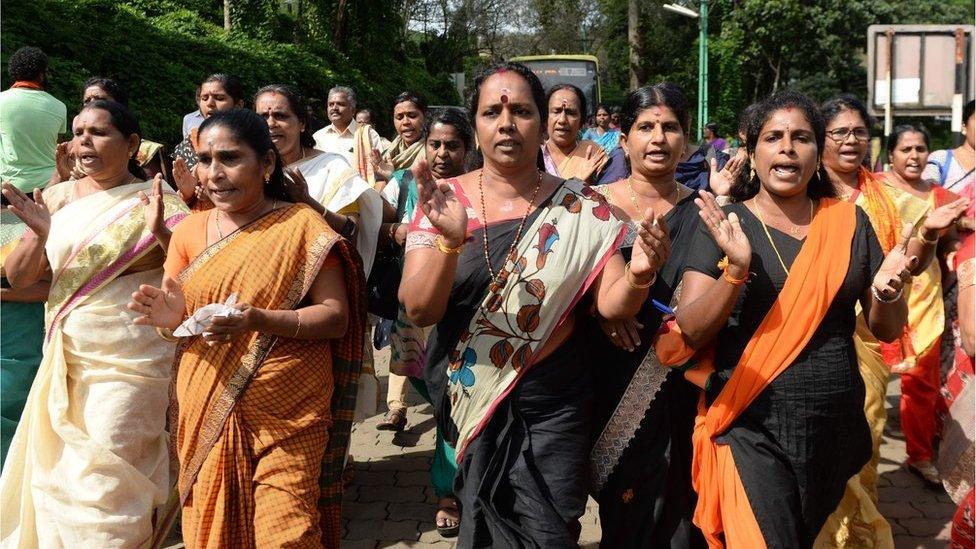Sabarimala: India's Kerala paralysed amid protests over temple entry
- Published
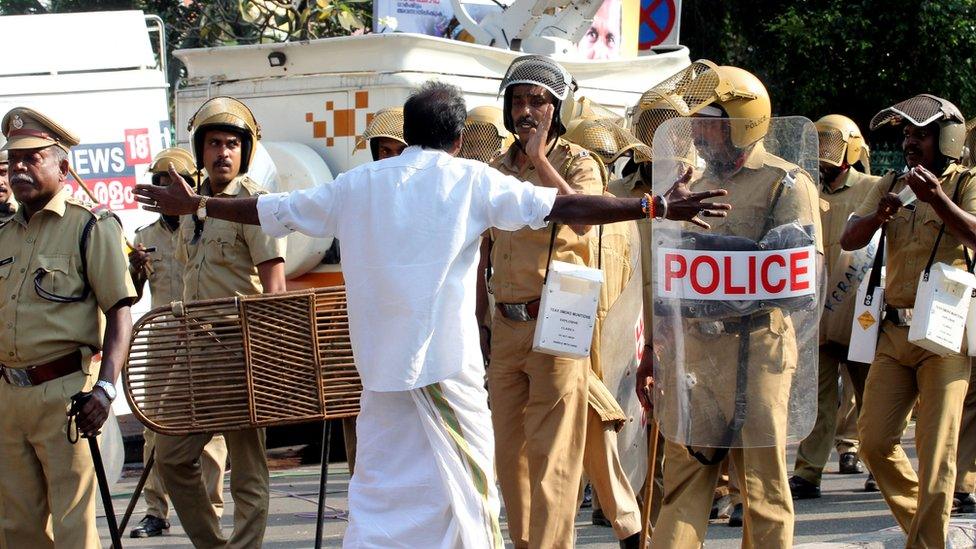
The entry of two women into the Sabarimala temple sparked angry scenes
Violent protests have paralysed the southern Indian state of Kerala after two women made history by entering a prominent Hindu temple.
Schools across the state are closed and public transport too has been suspended. One person was killed in clashes on Wednesday.
The Sabarimala temple was historically closed to women of "menstruating age" - defined as between 10 and 50.
The Supreme Court revoked the ban in September, which prompted outrage.
On Wednesday, Bindu Ammini, 40, and Kanakadurga, 39, entered the shrine around dawn and became the first women to do so.
Sabarimala: Women defy historic temple ban
Thursday saw a second day of protests across the state.
Right-wing groups, supported by India's ruling Hindu nationalist Bharatiya Janata Party (BJP), demanded a state-wide shutdown. They wanted schools, colleges and businesses to remain closed as a sign of protest.
The state government, which supports the Supreme Court ruling, stepped up security and deployed police across the state for protection.
But fearing violence, schools and shops were closed. And buses did not run as protesters blocked highways and other roads.
In total, more than 700 people were arrested on Wednesday and Thursday. Sixty police officers were injured, more than 80 public buses were damaged and at least a dozen police vehicles were attacked.
How big are these protests?
Violence broke out in several cities and towns on Wednesday as groups of protesters clashed with police, who fired tear gas to disperse crowds.
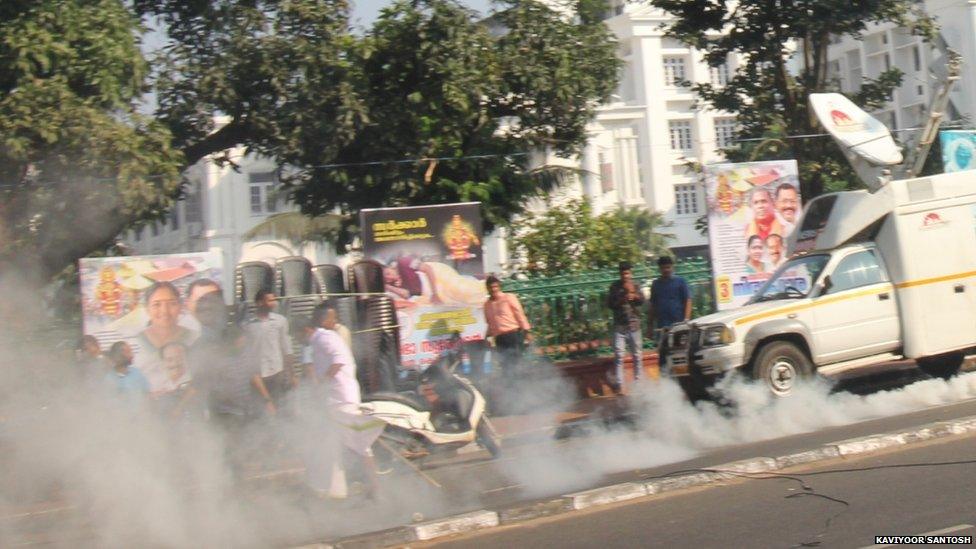
Police used tear gas to break up protests
Police told news agency AFP that at least 15 people were injured after protesters hurled stones at them.
According to local media reports, around 100 people were arrested by police, external in one district, where a mob assaulted a woman police officer.
Police told BBC Hindi's Imran Qureshi that they have also detained two people in connection with the death of a man during the protests on Wednesday.
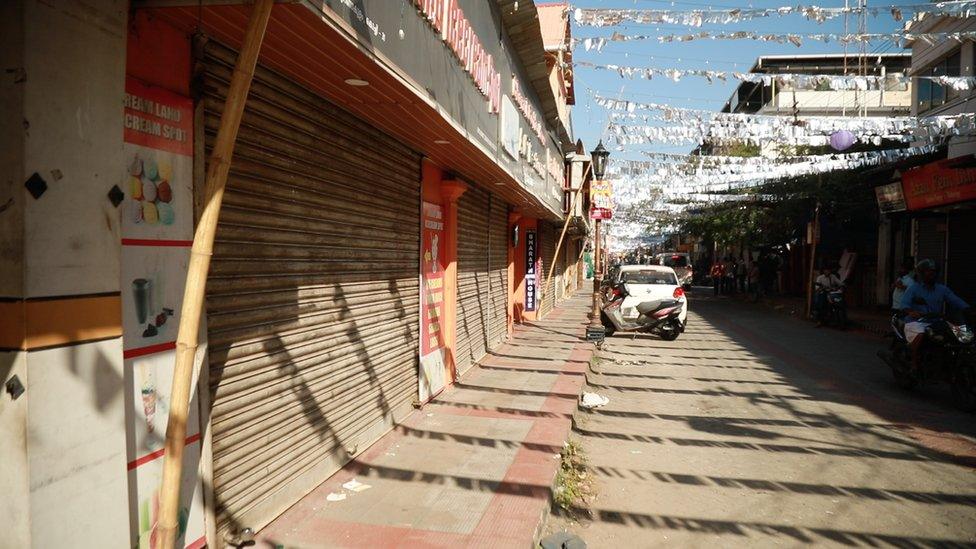
Shops were closed as they feared violence
Several journalists were also attacked, external in the protests that engulfed the state capital, Thiruvathapuram. Police said they are investigating the matter.
Indian airlines have issued warnings to passengers travelling to Kerala.
Why has the issue become so political?
The Kerala state government supports the court verdict and Mr Vijayan has repeatedly said his government will provide the security to enforce it.
But India's ruling Hindu nationalist Bharatiya Janata Party (BJP) has argued that the court ruling is an attack on Hindu values.
The issue has become increasingly contentious in the run-up to India's general election, scheduled for April and May. Critics have accused Prime Minister Narendra Modi of pursuing a religiously divisive agenda to court the BJP's mostly-Hindu support base.
Even the protests have turned into an ideological battle between the right and the left - most of the protesters belong to right-wing groups affiliated to the BJP; and those who support the court ruling are affiliated to Kerala's left-wing coalition government.
Why are women of a certain age not allowed to enter Sabarimala?
The Supreme Court decision to let women worship at the Sabarimala shrine came after a petition argued that the custom banning them violated gender equality.
Hinduism regards menstruating women as unclean and bars them from participating in religious rituals - but most temples allow women to enter as long as they are not menstruating, rather than banning women in a broad age group from entering at all.
Protesters have consistently argued that the court ruling goes against the wishes of the temple's deity, Lord Ayyappa.
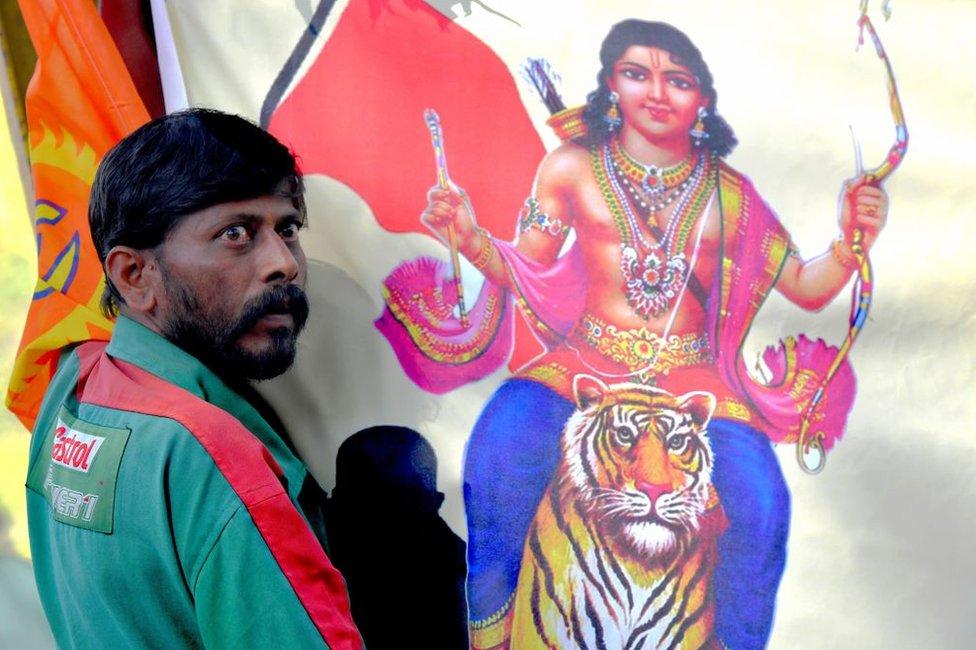
Devotees believe Lord Ayyappa is a an avowed bachelor
They say that the ban on women entering Sabarimala is not about menstruation alone - it is also in keeping with the wish of the deity, who is believed to have laid down clear rules about the pilgrimage to seek his blessings.
According to the temple's mythology, Lord Ayyappa is an avowed bachelor who has taken an oath of celibacy and hence, women of a certain age are not allowed into the temple.
- Published2 January 2019
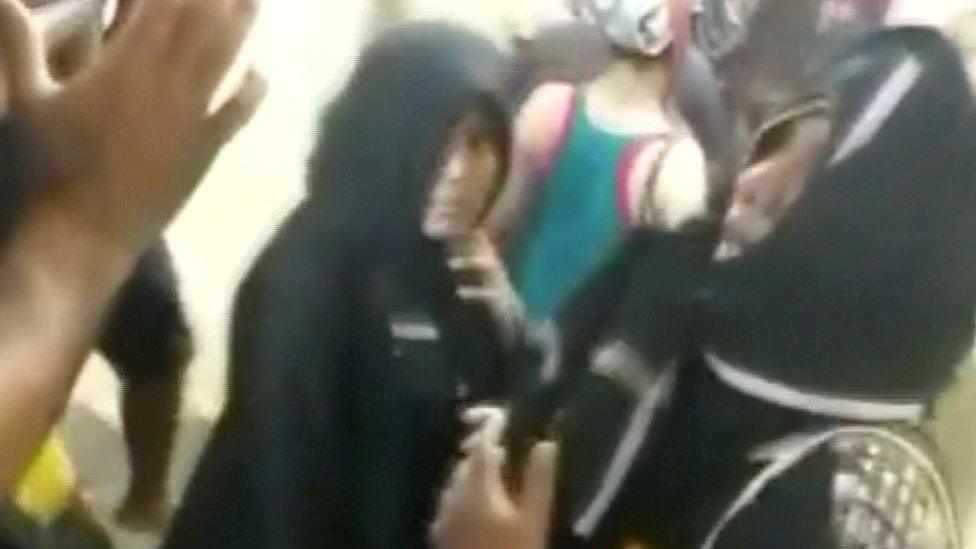
- Published17 November 2018
